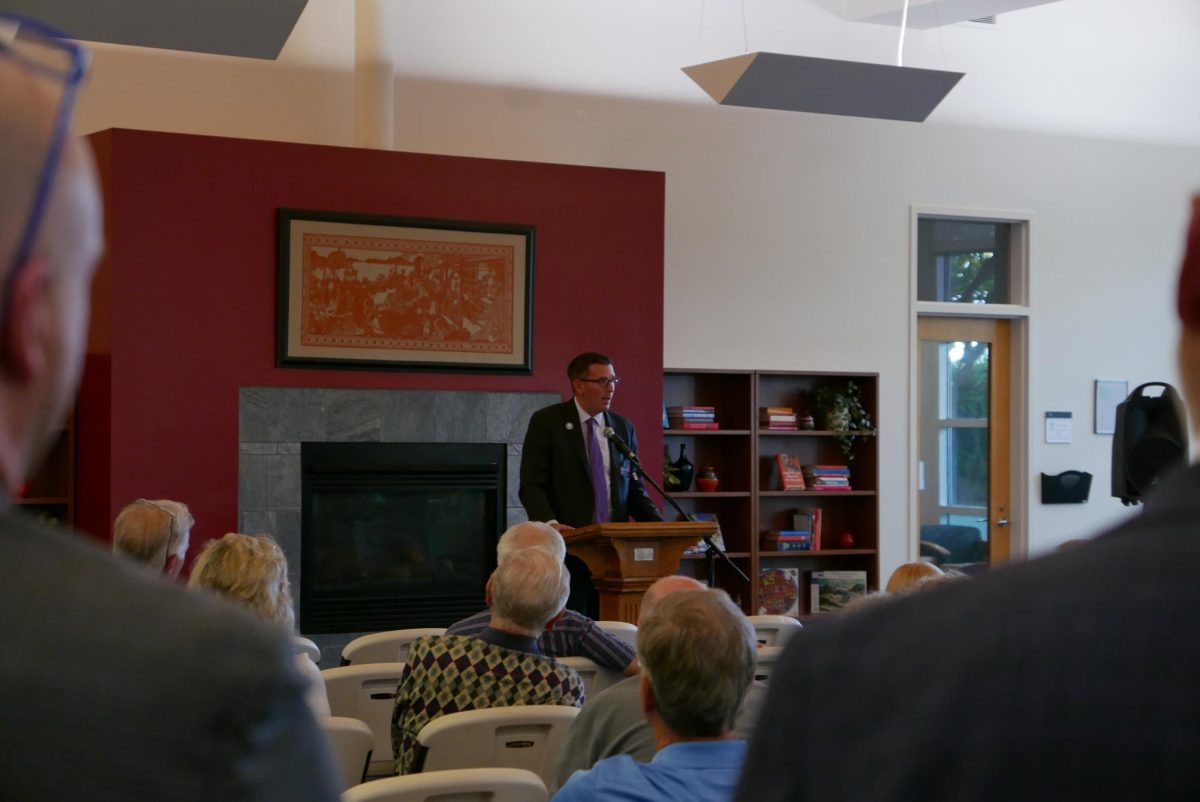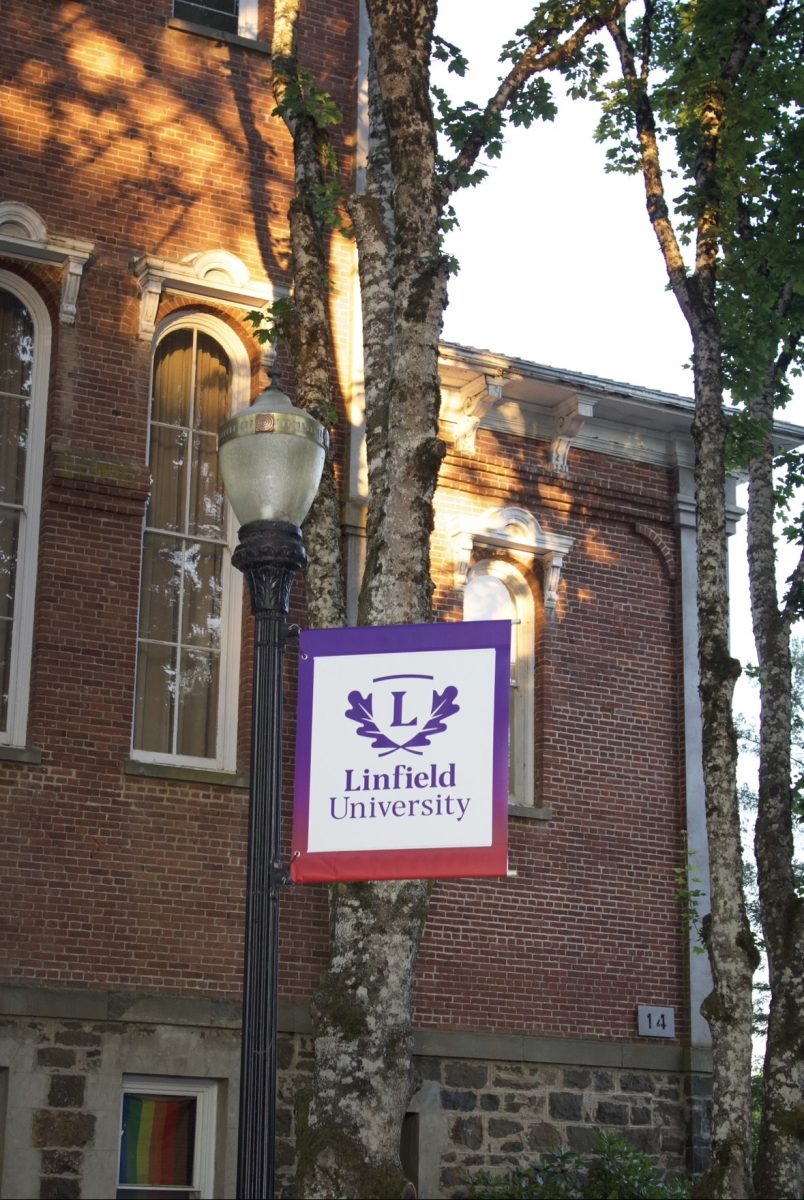The first faculty lecture of the spring semester was held Feb. 20 in Riley 201.
When Susan Agre-Kippenhan, dean of faculty, introduced the speakers for the lecture, she took a moment to explain an experiment that the Office of Academic Affairs was doing with faculty lectures, “We are experimenting with our own style of TED faculty talks. The faculty members will each talk for 15 minutes, in alphabetical order.”
In recent years, TED Conference’s TED Talks have caused many to rethink the idea of a lecture. There have been TED Talks from professionals in many fields of academic study.
During this experimental lecture event, three Linfield faculty spoke briefly about an area of study that they have been focusing on recently: Susan Currie Sivek, assistant professor of mass communications, Melissa Jones, assistant professor of nursing, and Yana Weisberg, assistant professor of psychology.
Sivek was the first to speak. She spoke about a recently published article she wrote entitled: “Packing Inspiration: Al Qaeda’s Digital Magazine Inspire in the Self-Radicalization Process.”
During Sivek’s talk, she talked about the fact that Al Qaeda members, like the former Inspire editor Samir Khan, created digital magazines to try to get people to become self-radicals and commit acts of terror.

Sivek stated on a slide of her Prezi presentation that “[Inspire] mimics the style of western magazines to normalize participation in terrorism as self-radicals.”
She went on to talk about how the narratives in the magazine articles mirror those of western superheroes and display acts of heroism. The magazine creators also use political slogans from Americans and turn their meanings around. This can have huge impacts.
One observer pointed out, “It is backward that they would use western culture as influences because of the huge amount of hatred they have toward us.”
Sivek ended her talk with a disclaimer that just because an individual reads these magazines will not guarantee that they will be moved to commit acts of terror; at the same time, when addressing a question from a member of the audience, she made it known that it is unknown to find out how many people download and read each issue of Inspire.
The next Linfield faculty member to talk was Jones. Jones presented some initial results of her research for her dissertation.
Jones talked about the generational differences of learning that appear in the online classroom.
At the moment, she is still in the process of data collection and only beginning to analyze what material she does have.
On her presentation she wrote that a reasoning for her research was a “gap in nursing education research related to learning and the diversity of students from a generational perspective.”
This information has become so important because of the trending statistics that nurses with associate degrees are being forced to go back to school to get bachelor’s degrees in nursing.
The return of many to school has created a wide variety of people who take advantage of online learning.
Jones is conducting her study using nurses in an online class that range from ages 26 to 56.
Because of the huge variation of ages in online classes, there are a variety of comfort levels among the students with technology.
Jones shared a statement from one of the older nurses, “I was able to gain a perspective on issues from my (younger) project partner that I would not have thought about on my own, and it helped me grow in tolerance and understanding.”
As her research continues it seems as if the trends of mentorship will evolve in two directions, from elder, more experienced nurses teaching younger nurses techniques for nursing, as well as the younger participants teaching the elders about technology and how to effectively use it both on and off the job.
The last lecture was given by Weisberg. She was interested in finding out if people can change their personalities if they had the desire to do so. Weisberg conducted a study using surveys of 228 college students to see what their goals for change were and how much they did change during the course of eight weeks.
The 228 people surveyed were made up of 114 couples so she was also able to see how one participant’s personality affected that of their partner. The study also allowed Weisberg to talk about what happens when two partners have different personalities.
“I am in a relationship so I thought that it was interesting to see what happens when your partner has a different personality trait than you,” said freshman Lacey Dykgraaf, a member of the audience.
The general trend of the data showed that personality can change during the course of eight weeks. The majority of results that Weisberg shared were ones that had positive changes, but she did share when asked that the changes can certainly go both ways.
This series of lectures inspired by TED Talks was quite informative.
The reception in the crowd was welcoming to the variety of materials that were covered during the hour and a half long event.
“I am addicted to TED Talks, which was my inspiration to come tonight. I feel that the lecture fulfilled this goal because it opened the listeners up to new ideas,” said freshman Dana Lester, a student at Linfield College.
The mini lecture series offered observers the ability to hear what was going on in a handful of the departments on campus.
Weisberg said at the beginning of her lecture that she was excited to be able to hear what people in other disciplines on campus are researching.
Julian Adoff
Multimedia editor
Julian Adoff can be reached at [email protected].
Photo by Julian Adoff






